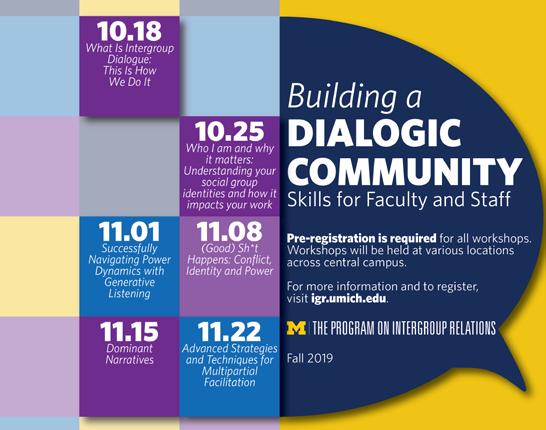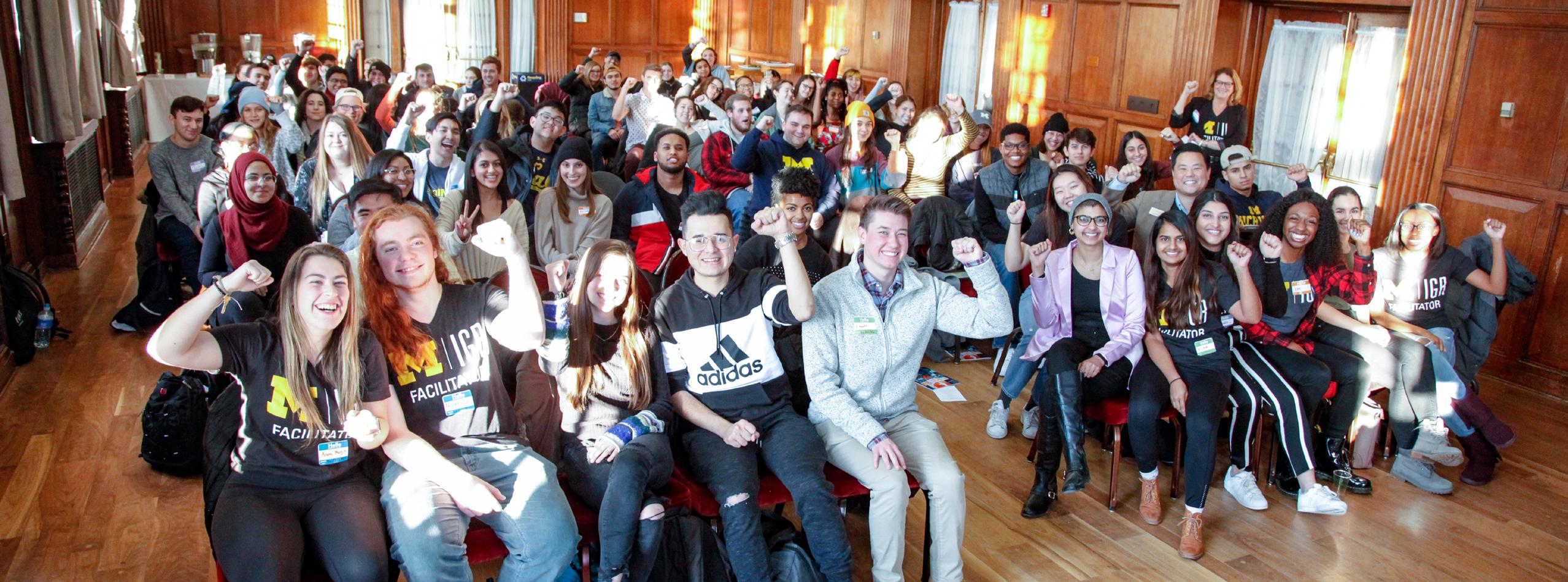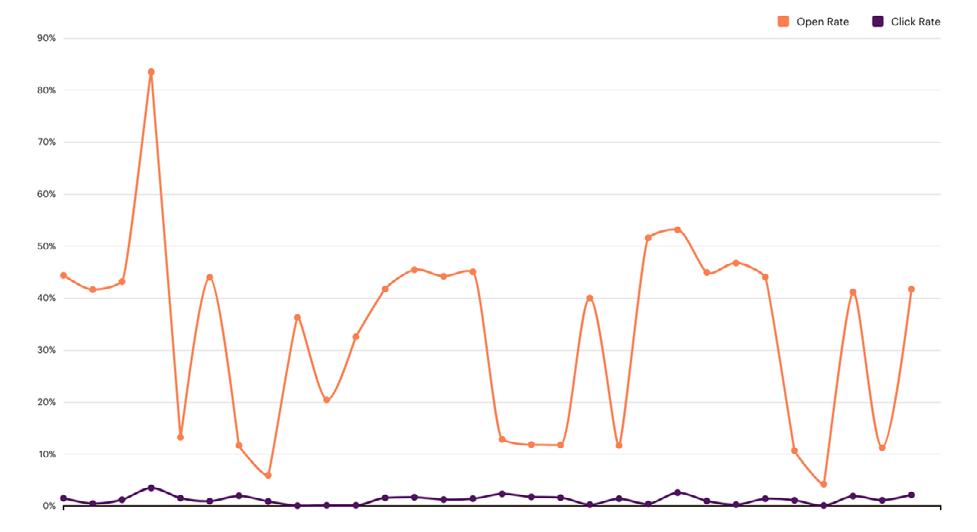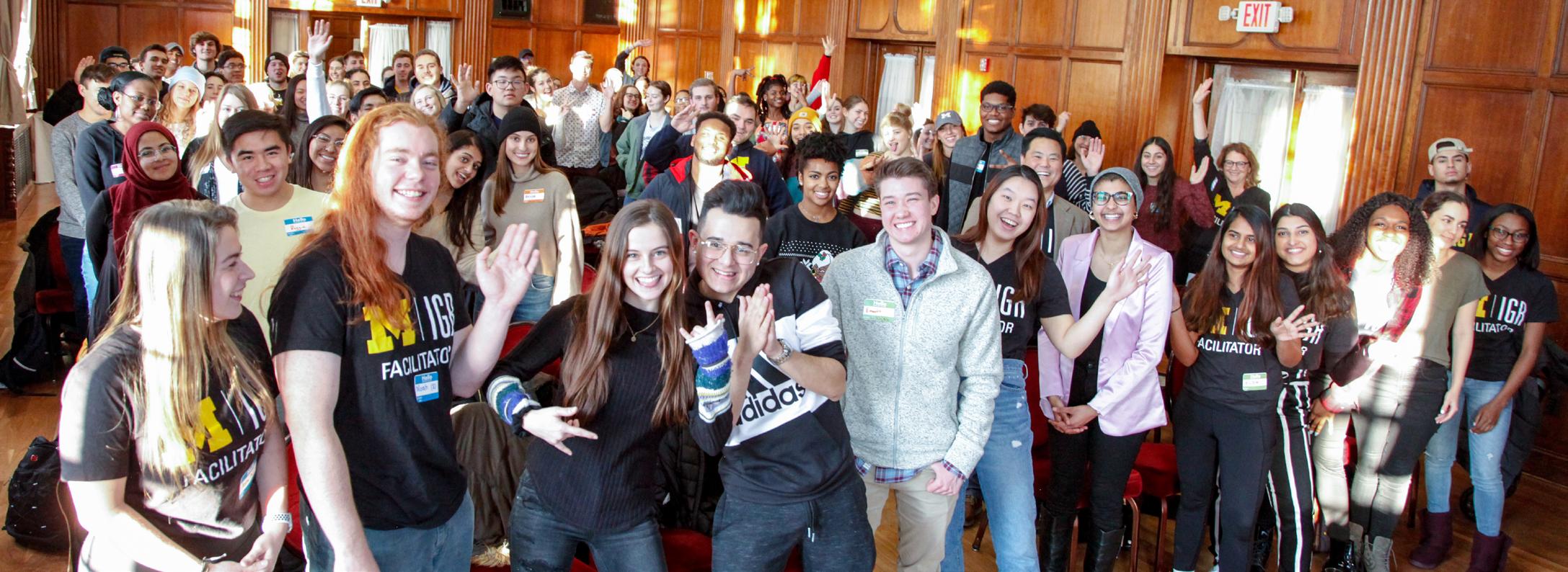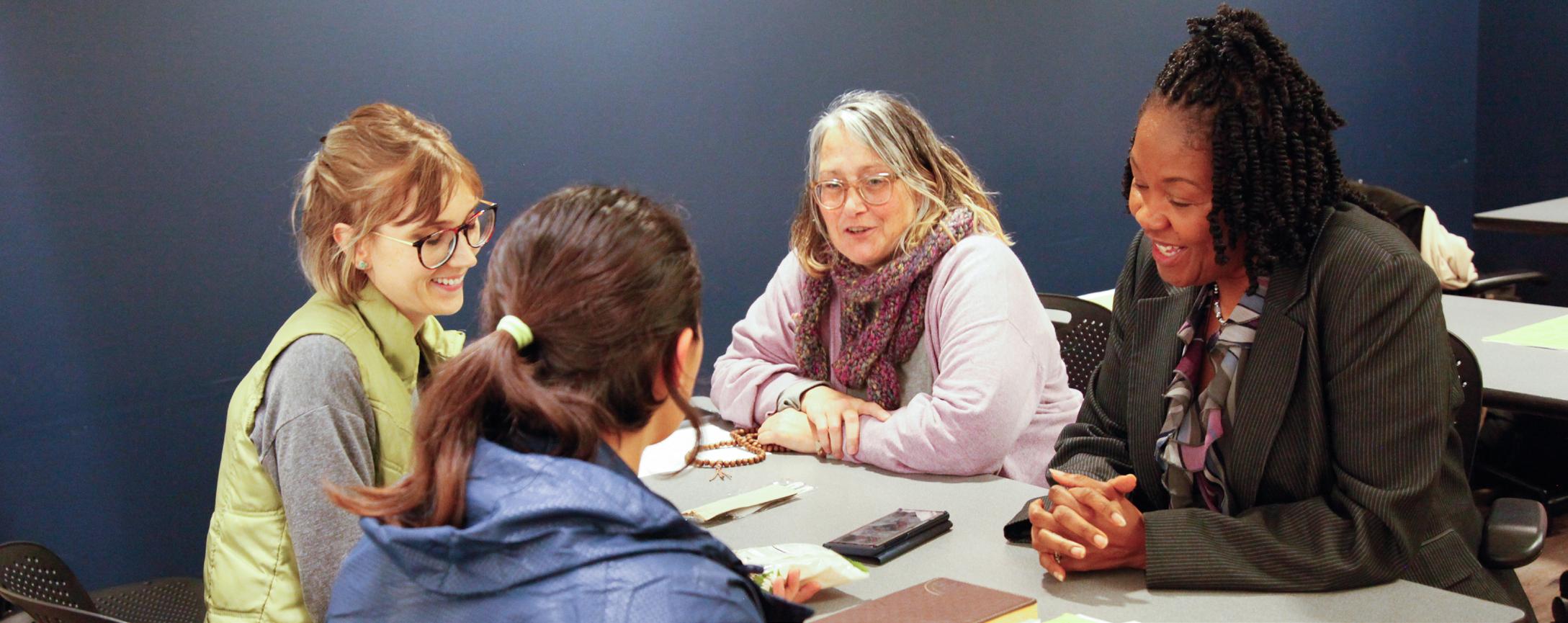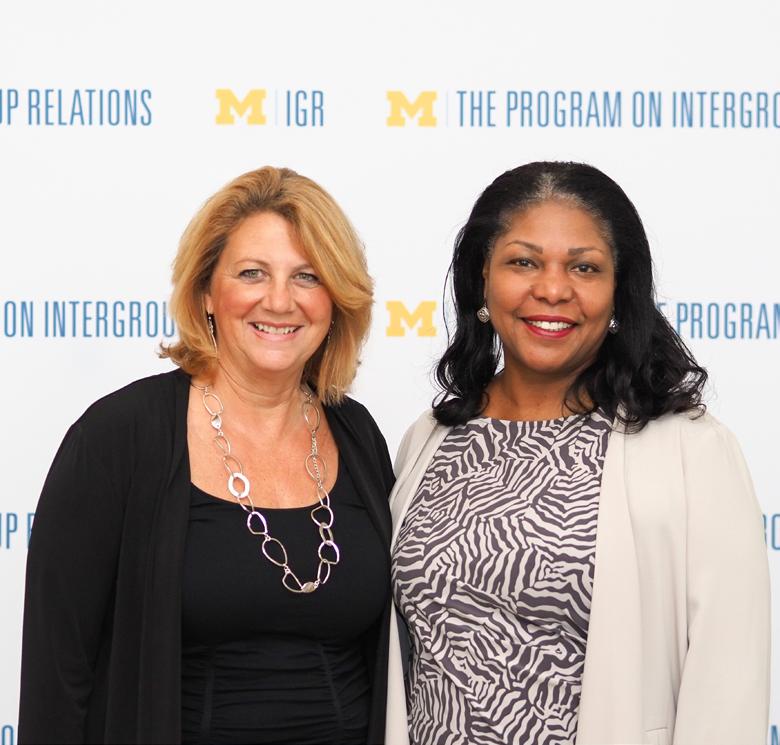
2 minute read
Strategic Initiatives & Partnerships
Building intergroup relationships and collaboration opportunities
Engaging in sustained strategic partnerships IGR engaged in three sustained strategic partnerships with the School of Education, Organizational Learning, and School of Social Work. These partnerships were selected based on:
Advertisement
An investment and commitment to developing dialogic skills and practices 2. 3.
An understanding of IGR’s mission and efforts to advance IGR’s mission Identifying capacity building and sustainable practices
Shana Schoem Associate Director for Strategic Initiatives and Partnerships
Integrating dialogic pedagogy into courses
Stephanie Hicks
Lecturer III 1. Completed a second semester of special Race and Ethnicity (R&E) discussion sections in Anthropology 101 in Winter 2020. Students in
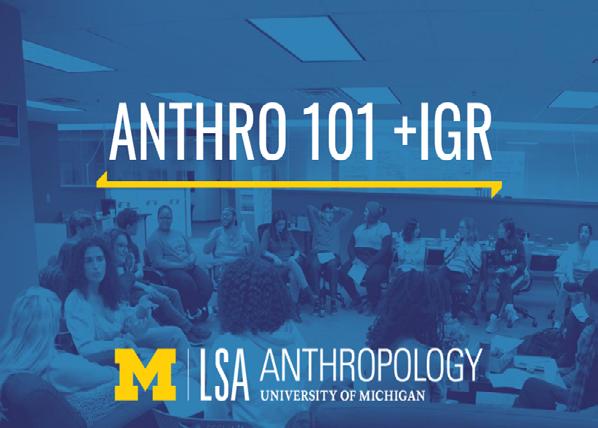
these two sections (20 students in each section, 40 students total) experienced dialogic pedagogy that supported the R&E goals of the course. Anthro GSIs were trained and supported throughout the
Graphic image for Anthro 101 + IGR.
process by IGR staff/faculty. IGR and Anthro will continue to work together, integrating more dialogic
pedagogy into these special sections and possibly all discussion sections of the course. Completed successful dialogic pedagogy training for GSIs teaching R&E courses in Women’s Studies in Fall 2019. Screen still image of promotional webpage Integrated dialogic activities in to American Culture 201: American Values with Professor Scott Larson. Peer facilitators from IGRs CommonGround Program led the American Culture 201 activity, allowing students to engage in small group conversations specifically around their racial and ethnic identity with undergraduate and graduate students trained in intergroup dialogue facilitation.
Building Campus Capacity for Dialogic Skills
In Fall 2019, IGR offered a series titled Building a Dialogic Community: Skills for Faculty and Staff as part of the U-M Diversity, Equity, and Inclusion (DEI) Summit. The series consisted of six workshops related to the Michigan Model of intergroup dialogue and dialogic skills-building, and was open to all faculty and staff on campus.
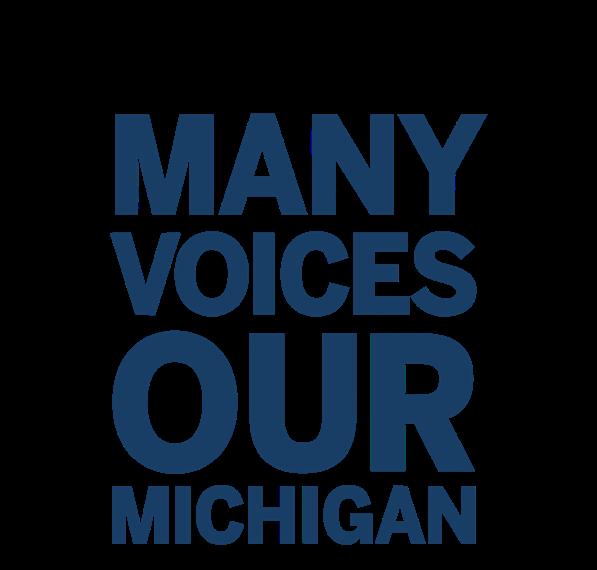
The series was generously supported by the U-M Office of Diversity, Equity & Inclusion.
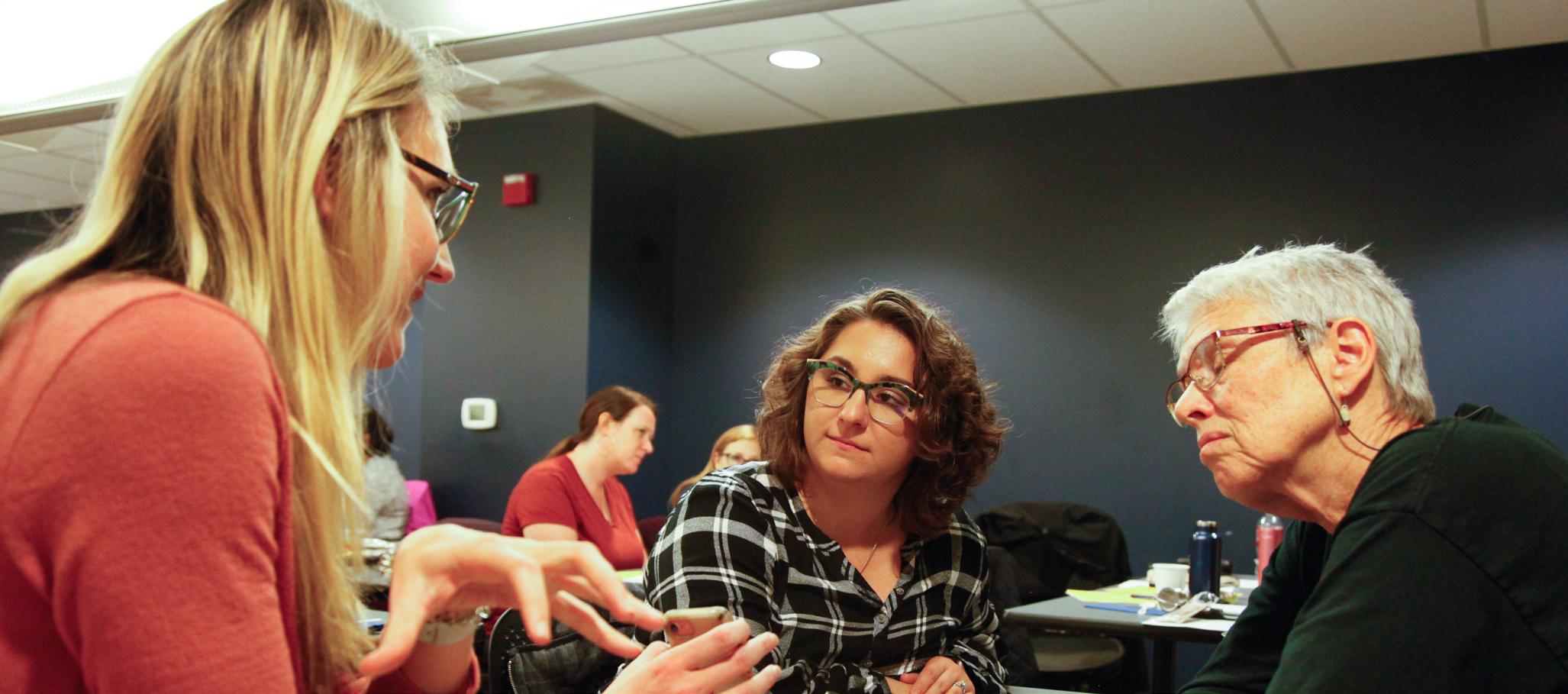
Finding: There is great interest across campus in developing skills that can be used to improve campus climate related to DEI.
17 Schools/Colleges 116 Participants
Fall 2019 Building a Dialogic Community workshop. Photo by Henry Mochida. Six Workshops on IGD and Dialogic Skills-Building
The workshop topics were ordered to build upon one another, so that participants could engage with the series as true beginners or advanced practitioners. Due to the interactive nature of the workshops, capacity was capped at either 25 or 30 participants. All of the workshops were filled to capacity within days of registration opening, and all had waitlists. Workshop titles included:
1. 2.
3. 4. 5. 6. What is Intergroup Dialogue: This is How We Do It Who I am and why it matters: Understanding your social group identities and how it impacts your work Successfully Navigating Power Dynamics with Generative Listening (Good) Sh*t Happens: Conflict, Identity and Power Dominant Narratives Advanced Strategies and Techniques for Multipartial Facilitation
